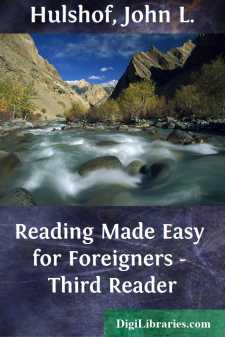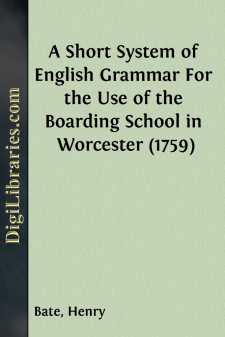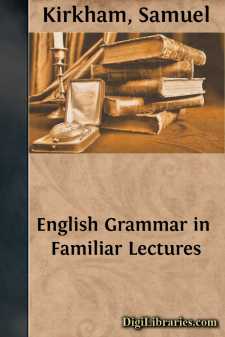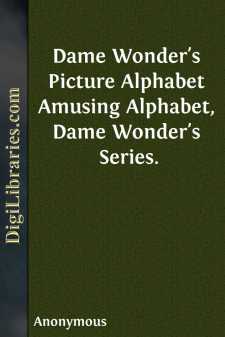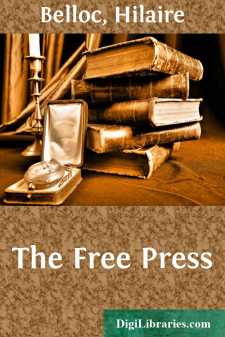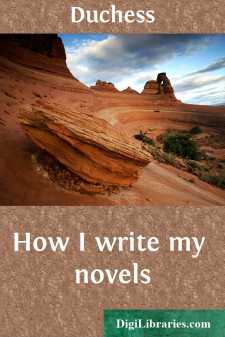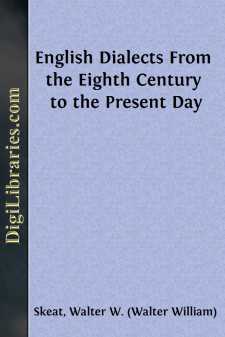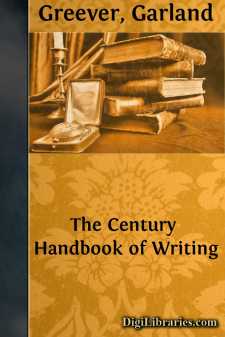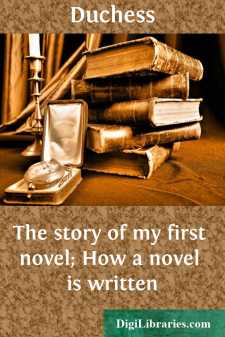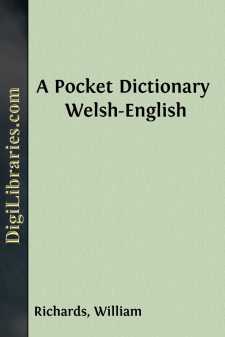Language Arts & Disciplines
Language Arts & Disciplines Books
Sort by:
by:
John L. Hulshof
LESSON I FLAG DAY In this fair land of ours you can see the Stars and Stripes floating over every public school. This beautiful flag stands for our country. Every American is proud of his country's flag. It stands for all that is good and dear to an American. It stands for Liberty. It proclaims liberty to all. Every star stands for liberty. Every stripe stands for liberty. It stands for liberty of...
more...
by:
Henry Bate
Usage and Custom are the Rules and Measures of every Language, and the Rules of Grammar have nothing more to do, than to teach it. The Grammar is to be fashioned from the particular Language, it treats of, and not the Language from the Grammar. For want of following this regular Plan, our Modern GRAMMARIANS have introduced the Grammar Rules of other Languages into their own; as if all Language was...
more...
by:
Samuel Kirkham
LECTURE I TO THE YOUNG LEARNER. You are about to enter upon one of the most useful, and, when rightly pursued, one of the most interesting studies in the whole circle of science. If, however, you, like many a misguided youth, are under the impression that the study of grammar is dry and irksome, and a matter of little consequence, I trust I shall succeed in removing from your mind, all such false...
more...
by:
Anonymous
stands for anrcher,Bfor hisBow;CtheCrow that he shot at;—andDfor hisDog. Estands for anEnsign,Ffor aFlag, and aFort:Gstands for aGoat;—andHfor aHorse. Istands for anItalian,Jfor aJug, and forJane:Kstands for aKite:—andLfor aLobster. Mstands forMary,Nfor theNumbers she wrote;Ostands for anOwl:—andPfor a prettyParrot. Qstands for aQueen,Rfor theRose in her hand:Sfor theSword...
more...
by:
Hilaire Belloc
I About two hundred years ago a number of things began to appear in Europe which were the fruit of the Renaissance and of the Reformation combined: Two warring twins. These things appeared first of all in England, because England was the only province of Europe wherein the old Latin tradition ran side by side with the novel effects of protestantism. But for England the great schism and heresy of the...
more...
by:
Duchess
To sit down in cold blood and deliberately set to cudgel one's brains with a view to dragging from them a plot wherewith to make a book is (I have been told) the habit of some writers, and those of no small reputation. Happy people! What powers of concentration must be theirs! What a belief in themselves—that most desirable of all beliefs, that sweet propeller toward the temple of fame. Have...
more...
CHAPTER I DIALECTS AND THEIR VALUE According to the New English Dictionary, the oldest sense, in English, of the word dialect was simply “a manner of speaking” or “phraseology,” in accordance with its derivation from the Greek dialectos, a discourse or way of speaking; from the verb dialegesthai, to discourse or converse. The modern meaning is somewhat more precise. In relation to a language...
more...
by:
Garland Greever
Fragments Wrongly Used as Sentences 1. Do not write a subordinate part of a sentence as if it were a complete sentence. Wrong: He stopped short. Hearing some one approach. Right: He stopped short, hearing some one approach. [Or] Hearing some one approach, he stopped short. Wrong: The winters are cold. Although the summers are pleasant. Right: Although the summers are pleasant, the winters are cold....
more...
by:
Duchess
The Duchess "The story of my first novel" My first novel! Alas! for that first story of mine—the raven I sent out of my ark and never see again! Unlike the proverbial curse, it did not come home to roost, it stayed where I had sent it. The only thing I ever heard of it again was a polite letter from the editor in whose office it lay, telling me I could have it back if I enclosed stamps for...
more...
by:
William Richards
RHAGYMADRODD. Mae yr awyddfryd cynyddol sydd yn mhlith y Cymry i ymgydnabod yn fwy â’r iaith Saesoneg yn un o arwyddion gobeithiol yr amserau. Am bob un o’n cydgenedl ag oedd yn deall Saesoneg yn nechreuad y ganrif hon, mae yn debyg na fethem wrth ddyweud fod ugeiniau os nad canoedd yn ei deall yn awr. O’r ochor arall, y mae rhifedi mwy nag a feddylid o’r Saeson sy’n ymweled a’n gwlad...
more...


